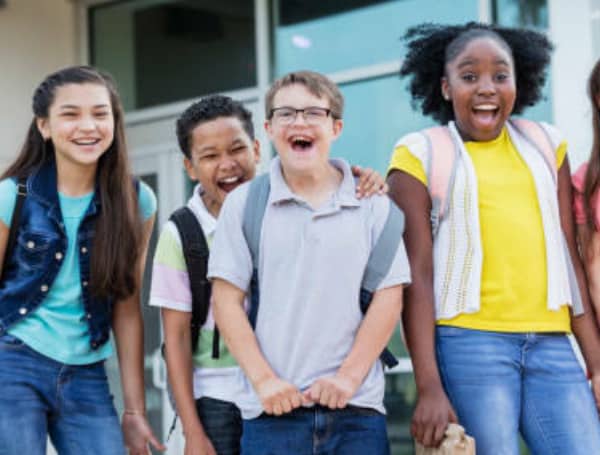There is a lot to be frustrated about as 2021 concludes. Some places are back in lockdown over rising coronavirus cases, while others are re-imposing
There is a lot to be frustrated about as 2021 concludes. Some places are back in lockdown over rising coronavirus cases, while others are re-imposing previous restrictions and introducing new ones—including my city.
But at this joyful time of the year, I choose to be optimistic and focus on all the good things happening right now, particularly in the world of education.
Here are 4 positive educational trends to celebrate:
1. Government-run schools are losing students
An in-depth NPR analysis published this month revealed that many public schools are seeing declining enrollment for the second year in a row. The dip was understandable during the 2020/2021 academic year, as many schools remained closed, but this year’s continued decline is striking. Many of these students left their district school for homeschooling, private and parochial schools, and charter schools, or their parents delayed their kindergarten entry. Microschool networks are also booming now with an influx of new students.
According to NPR: “We compiled the latest headcount data directly from more than 600 districts in 23 states and Washington, D.C., including statewide data from Massachusetts, Georgia and Alabama. We found that very few districts, especially larger ones, have returned to pre-pandemic numbers. Most are now posting a second straight year of declines. This is particularly true in some of the nation’s largest systems.”
This mirrors data I’ve been reporting on this fall showing an ongoing exodus from government-run schools.
2. Homeschooling numbers remain high
The NPR report acknowledged that the growing acceptance and ease of remote work has led more parents to consider the homeschool option for their children, but it’s not just the professional “Zoom class” of parents that is going this educational route.
An Education Week report from the fall of 2020 found that the biggest growth in homeschooling last year was among low-income families. These families were likely heavily concentrated in urban areas that experienced the longest school closures and the most remote learning failures.
As I’ve reported previously, the US Census Bureau recorded a doubling of the homeschooling rate in 2020 alone, to more than 11 percent of the overall school-age population. The rate of black homeschooling families grew five-fold last year, according to the Census, with black homeschooled students now over-represented in the US homeschooling population compared to public schools. A separate NPR article this month explained that this surge in black homeschooling families is ongoing.
3. School choice policies are expanding
The coronavirus response re-empowered parents in remarkable ways. Prolonged remote schooling gave them a close-up look at what was actually happening in their children’s classrooms and prompted them to investigate other education options, including homeschooling, “pandemic pods” and micro-schools, private schools, charter schools, and high-quality, private, virtual learning programs.
Along with this renewed parental control came a push for expanded school choice policies. It’s been a year of school choice, with many states introducing or expanding school choice legislation that allows education dollars to follow students instead of funding bureaucratic school systems. Recent arguments before the US Supreme Court suggest further expansion of education choice for families.
4. Federalism is alive and well
While the federal government tries to exert control over state-level policies, particularly related to vaccine requirements on private businesses, the past year has shown that American federalism, or the decentralization of power to the state and local levels, is strong and effective. Perhaps nowhere is this more apparent than in data showing that individuals are exiting cities and states with the most restrictive coronavirus policies and entering areas that have remained relatively open.
FEE’s Brad Polumbo and Jon Miltimore each wrote articles recently showing that high-profile people such as Dave Rubin and Gordon Ramsay are leaving places like California for freer states in the South.
A recent Economist article explains that these migration patterns appeared prior to the coronavirus response but have been accelerated since the spring of 2020. “Unlike Texas and Florida, which reopened quickly, California insisted on factories and businesses staying shut, to the mounting frustration of bosses,” reports The Economist. “According to Mr Florida of the University of Toronto, ‘the reason people have left cities and moved to rural hinterlands or cities in the South is not just taxes. It’s the fact that they can live their daily life and send kids to school with minimal restrictions.’”
With virus-related restrictions mounting in many areas that have already experienced a population exodus, the outward trend is likely to continue in the new year. Luckily, in America, we have the freedom to vote with our feet and choose to live in freer places.
As 2022 approaches, let’s focus on all the good around us and be grateful for our freedom to live and learn as we choose.
Wishing you all a very happy holiday and a new year filled with peace and abundance!
Check out Tampafp.com for Politics, Tampa Area Local News, Sports, and National Headlines. Support journalism by clicking here to our GoFundMe or sign up for our free newsletter by clicking here.
Android Users, Click Here To Download The Free Press App And Never Miss A Story. It’s Free And Coming To Apple Users Soon

Kerry McDonald
Kerry McDonald is a Senior Education Fellow at FEE and author of Unschooled: Raising Curious, Well-Educated Children Outside the Conventional Classroom (Chicago Review Press, 2019). She is also an adjunct scholar at The Cato Institute and a regular Forbes contributor. Kerry has a B.A. in economics from Bowdoin College and an M.Ed. in education policy from Harvard University. She lives in Cambridge, Massachusetts with her husband and four children. You can sign up for her weekly newsletter on parenting and education here.

COMMENTS